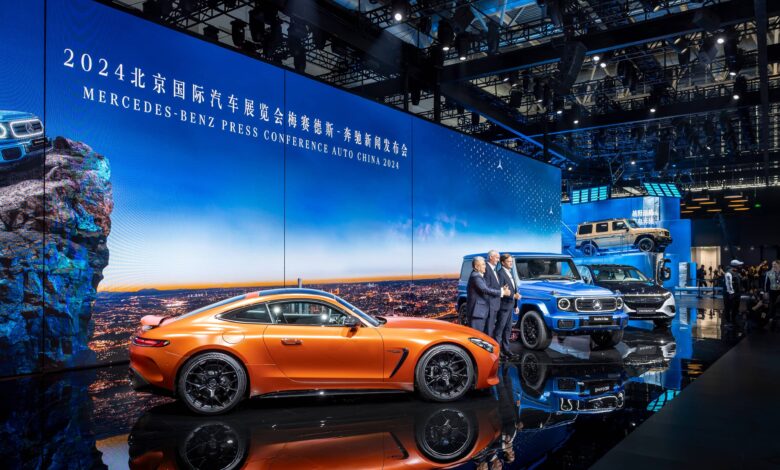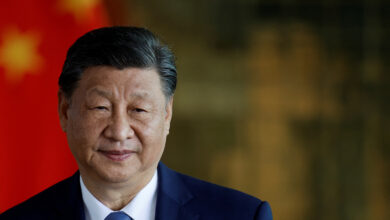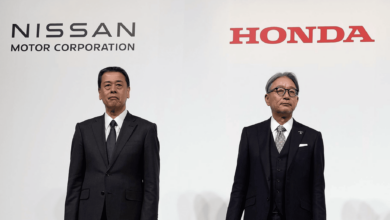
BMW AG and Mercedes-Benz Group AG reported sharp declines in Chinese car sales for the third quarter, as slumping consumer sentiment spilled over to luxury spending in their biggest market.
Third-quarter deliveries of BMW and Mini brand cars dropped 30%, the largest decline in more than four years. At Mercedes-Benz, sales slipped 13% partly because of a decline in the sales of top-of-the-line S-Class limousines and Maybach sedans.
Both companies have issued profit warnings due to the combined effect of slowing growth in European electric vehicle sales. If trade tensions escalate, Beijing is considering raising duties on imported large-engine vehicles in retaliation for the European Union’s move to impose tariffs on Chinese-made EVs, reaching as high as 45%.
In fact, sales for BMW and Mini in China dropped less than 5% in the first and second quarters of the previous year. This puts the world’s largest auto market into a comparative perspective, as the overall decrease in vehicle sales for the BMW group went down to 13%. A recall that affected braking systems likewise affected deliveries.
For Mercedes, the 12% decline in sales overall of its premium vehicles marks a reversal in the brand’s push further upmarket. This is just the latest cautionary signal for Germany’s vaunted automotive industry, which faces rising costs at home and increasing competition in key Chinese markets, especially BYD Co. in the EV sector.
On Thursday, BMW and Mercedes shares were little changed, but are down 23% and 7% respectively this year as a stream of negative news piles up on the companies. After sharp cuts to financial guidance at all three of Germany’s major automakers, including Volkswagen AG, investors are preparing for continued weak sales.
While BMW showed declines in all its regions, there was a bit of a silver lining in its electric vehicle offerings: Battery-powered model deliveries-including the i4 sedan and the iX1 SUV-fell 10% year-over-year to 103,440 units in the third quarter.
Meanwhile, Mercedes also saw its wholesale deliveries of passenger EVs dive by as much as 31% to just 42,500 units, while the company posted a surge of 10% in plug-in hybrid sales on robust demand from the United States of America.
Meanwhile, the new batches of EVs launched by Mercedes have been indifferent among Chinese and other consumers, who perceived homegrown brands to be more advanced in offering in-car digital and entertainment technologies.
Volkswagen AG, the owner of the Audi and Porsche brands, is due to release its third-quarter deliveries on Friday.



